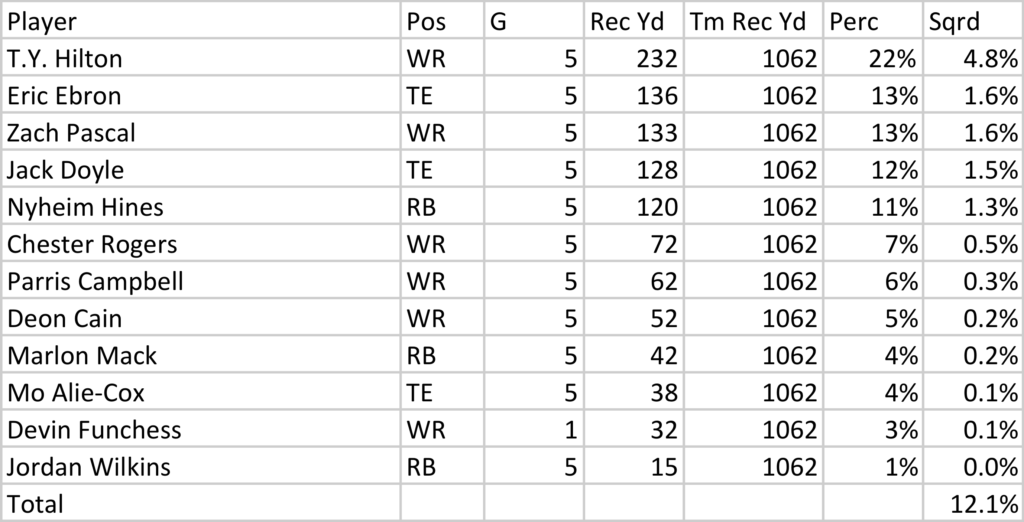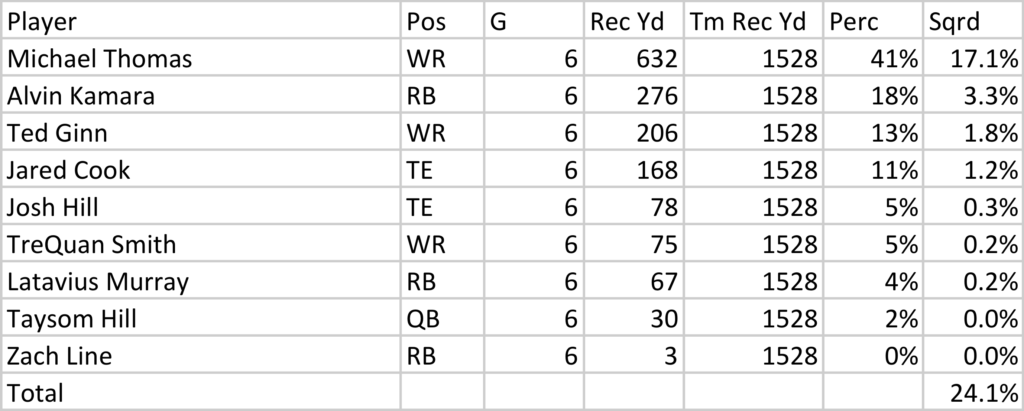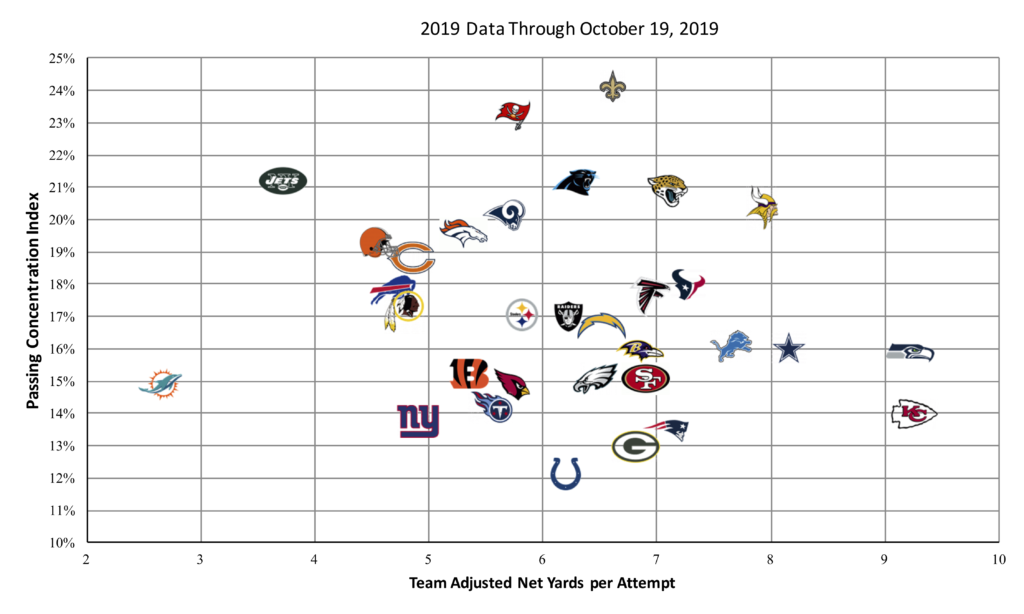Last year at this time, I looked at which teams were spreading it around the most in their passing offenses. And this time last year, the Indianapolis Colts had the most diverse passing offense in the NFL. This season, that honor …. again belongs to the Colts.
T.Y. Hilton is the team’s leading receiver and has “only” 22% of the team’s receiving yards; Eric Ebron and and Zach Pascal are next on the team and neither has more than 13% of the team’s receiving yards. Indianapolis is the only team in the NFL where its top three leaders in receiving yards have less than half of the team’s receiving yards. The table below shows the Colts receivers; the final column is the square of the percentage of team’s receiving yards, which is how we calculate the concentration index.
Meanwhile, the Saints are on the other end of the spectrum. Michael Thomas is the engine of the offense: he is responsible for over 40% of all his team’s receiving yards, and is the only player in the NFL who can make that claim. The table below shows the breakdown of the Saints passing offense, which has been the least diverse in the league.
The table below shows the concentration index for each passing offense in the NFL. For those curious about some of the fine print on the concentration index, you can review that here.
Finally, here is the same information but in graph form.
I’ll note that as great at Russell Wilson and Patrick Mahomes have been this year, it’s probably even more impressive when you consider that they haven’t been leaning on any one player. Yes, Mahomes has Travis Kelce, but with Tyreek Hill injured, Kansas City has spread it this year: Sammy Watkins and Mecole Hardman are second and third on the team in receiving yards, but neither has been a dominant player. For Seattle, Tyler Lockett and rookie D.K. Metcalf are taking over as the top threats with Doug Baldwin retired, and the now-injured TE Will Dissly ranked third in receiving yards. Given how dominant Wilson and Mahomes have been, it’s even easier to just credit them for their success than their supporting cast given the diversity of their passing offenses.
What stands out to you?



